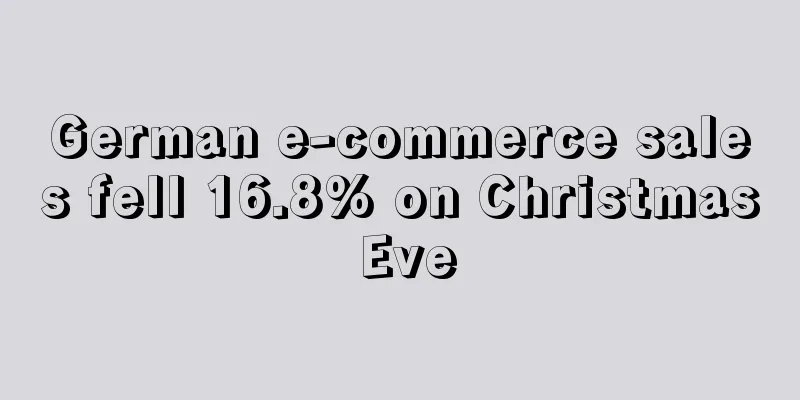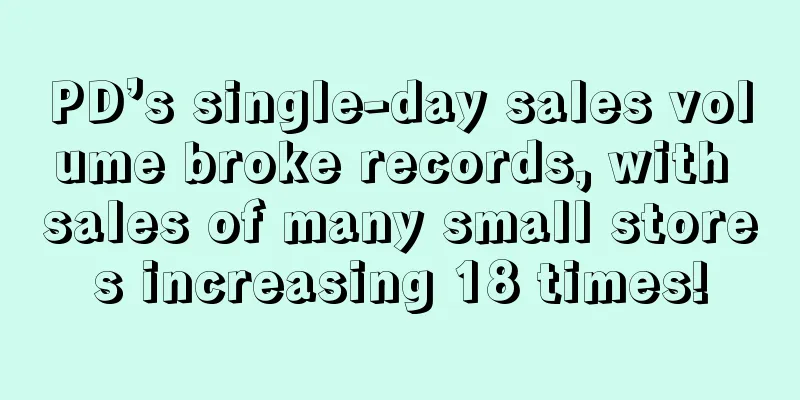German e-commerce sales fell 16.8% on Christmas Eve

|
The latest research shows that online sales in Germany fell 16.8% between October 1 and November 30 ( including Black Friday ) compared with the same period in 2021 , the first decline since researchers began keeping statistics in 2014. However , it was still a 13.1% increase compared to 2019.
As we all know, October and November are the eve of the holiday season , when consumers start preparing for the holidays and online sales usually rise . However, a study by the German Federal E-Commerce Association Bevh shows that this is not the case for the German e- commerce industry this year .
Data shows that sales of fashion products in Germany fell by 28.1% in October and November this year compared with 2021. Sales data for the same period in 2019 were basically the same . According to researchers, this shows that it is difficult for retailers to push price increases.
Compared with fashion, other categories have shown stronger resilience . Sales of food, medicine and pet products have still achieved growth this year . Sales of household appliances are also very stable . The declines in furniture, lighting and decorative products (down 9.1%) and home textiles (down 5.8%) are not very large .
Martin Grober, deputy general manager of Bevh, said: "Due to the impact of the epidemic last year , online sales growth was particularly strong. This year is completely different, and consumers ' willingness to shop has generally declined , especially in clothing and consumer electronics. The sales of these two categories have declined most significantly . " In addition, a shocking finding in the study is that multichannel retailers have seen a significant drop in sales. Their online sales have fallen by 29.5% compared to October and November 2021, and even compared to pre- pandemic levels in 2019, they have fallen by 11.9%.
On the other hand , online D2C retailers saw sales drop by 23.4% compared to last year . However , compared to the same period in 2019, this figure increased by nearly 85%. Compared to the whole of 2019 , total sales were still up 71%.
Finally, Bevh also communicated with its members , who contribute 90% of the sales of B2C business in Germany . It is understood that the vast majority of members (74.3%) believe that consumer uncertainty is the biggest obstacle to their business at present, followed by increased procurement costs (64.3%), followed by increased packaging and logistics costs (50%).
At present, holiday season sales in Europe do not seem to be very optimistic. Cross-border sellers can adopt a more stable strategy during this period and not be blindly aggressive. Germany E-commerce |
<<: Amazon cuts storage capacity again! FBA rules changed
>>: Amazon's layoffs continue, and even its leadership is not immune
Recommend
What is Piperlime? Piperlime Review, Features
<span data-docs-delta="[[20,{"gallery"...
What is Socialbakers? Socialbakers Review, Features
Socialbakers is a website that provides data analy...
What is Pacific Express? Pacific Express Review, Features
Pacific Express is a financial service app that in...
The amount of items that Generation Z in the UK spend on "add-to-cart" products is as high as £6.5 billion per year
According to a survey conducted by Barclaycard Pa...
Update product categories and attributes! Etsy urges sellers to promote its website on social media
Etsy adds categories and attributes for three maj...
What is Locad (Southeast Asia cross-border e-commerce logistics engine)? Locad (Southeast Asia cross-border e-commerce logistics engine) Review, Features
Locad (Southeast Asia Cross-border E-commerce Log...
What is Ruston? Ruston Review, Features
Heilongjiang Ruston International Logistics Co. ,...
Shopify partner app leaked user privacy, nearly 17,000 sellers affected
Recently, Shopify's partner application Topd ...
What is shopvidi? shopvidi Review, Features
Shopvidi is a wholesale platform that takes a dat...
Cross-border full-link experience upgrade, Cainiao announced the Double 11 merchant support plan
In order to ensure that cross-border merchants ca...
The last wave of the peak season! Cyber Monday sales will exceed Black Friday
It is the Black Friday Cyber Monday Week, which...
Surpassing Britain and Germany, Denmark's per capita online shopping amount reaches 2,916 euros!
The European e-commerce market has been booming, ...
In 2021, Amazon’s advertising revenue exceeded US$31 billion, a year-on-year increase of 55%!
According to foreign media reports, Amazon recent...
What is Kouhigh? Kouhigh Review, Features
Kouhi.com is a cross-border social e-commerce plat...
What is voghion? voghion Review, Features
1. About Voghion Voghion is an emerging cross-bor...









